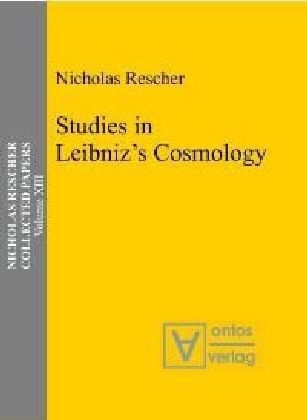Ulteriori informazioni
Leibniz s optimalistic cosmology is one of the most controversial and least appreciated sectors of his philosophical system. How can contingency figure in a context where all truth is seen as analytic? Why should the best of possibilities be realized? And how can omni-necessitation be averted if an omni-benevolent deity must create the best possible world? Moreover, how can this supposedly best of possible worlds contain so much suffering and evil? Then too, how can there be a best, anyway, seeing that anything can be improved upon? And how can a imperfect creature of limited intelligence possibly hope to fathom such cosmic mysteries? All these questions convey objections to Leibnizian ideas that have been made repeatedly over many years. In actual fact, however, Leibniz anticipated them all. The aim of the present book is to lend plausibility to how he set about it.
Sommario
Preface
Referential Abbreviations
Chapter 1: THE BEST OF POSSIBLE WORLDS
Chapter 2: LEIBNIZ ON THE WORLD S CONTINGENCY
Chapter 3: LEIBNIZ ON ONTOLOGICAL PERFECTION
Chapter 4: SOME PURPORTED OBSTACLES TO LEIBNIZ S OPTIMALISM
Chapter 5: LEIBNIZIAN PHYSICS
Chapter 6: ANALOGY AND PHILOSOPHICAL METHOD IN LEIBNIZ
Chapter 7: COORDINATING EPISTEMOLOGY AND ONTOLOGY IN LEIBNIZ
References
Nicholas Rescher's Publications on Leibniz
Index of Names
Info autore
Nicholas Rescher is University Professor of Philosophy at the University of Pittsburgh where he also served for many years as Director of the Center for Philosophy of Science. He is a former president of the Eastern Division of the American Philosophical Association, and has also served as President of the American Catholic Philosophical Association, the Americna Metaphysical Society, the American G. W. Leibniz Society, and the C. S. Peirce Society. An honorary member of Corpus Christi College, Oxford, he has been elected to membership in the European Academy of Arts and Sciences (Academia Europaea), the Institut International de Philosophie, and several other learned academies. Having held visiting lectureships at Oxford, Constance, Salamanca, Munich, and Marburg, Professor Rescher has received six honorary degrees from universities on three continents. Author of some hundred books ranging over many areas of philosophy, over a dozen of them translated into other languages, he was awarded the Alexander von Humboldt Prize for Humanistic Scholarship in 1984.

